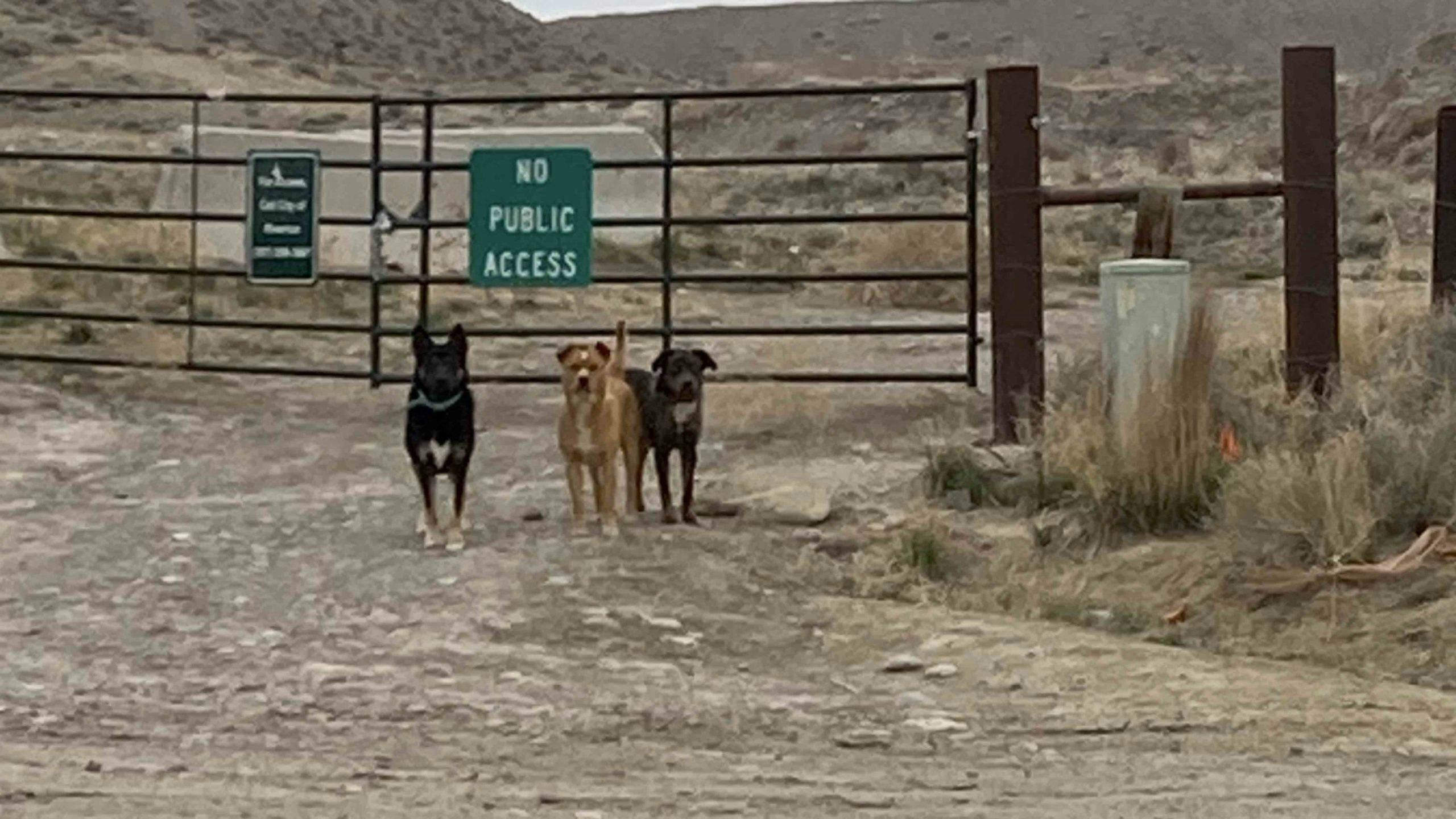Recent dog activity on the Wind River Indian Reservation has revived efforts to implement an ordinance against loose and vicious dogs.
The death of a woman in Ethete on April 10, while not confirmed to be the result of a dog attack, has officials once again looking at an ordinance aimed at addressing the problem of vicious dogs.
“We want this (ordinance) done,” said Darrel Lonebear Sr., a security supervisor of Northern Arapaho Housing. “People worked on this dog ordinance and it’s been put together in a great manner and fashion. Let’s make it part of a law and order code so it’s enforceable, that if people are going to keep these types of dogs around, and they do these things, (the owners) need to be punishable under the law.”
The death of Shawna Jo Bell, 42, is still being investigated, but records from the Fremont County Coroner’s office show that on the day she died, the coroner was dispatched to a scene in response to “animal bites.”
Lonebear said some community members have speculated Bell died as the result of a dog attack, although no official cause of death has been announced.
Northern Arapaho Tribal member Deno Roman commented on his Facebook page, saying “someone has to die from a pack of wild dogs for our ‘leaders’ to do anything.”
Roman did not respond to a message requesting further comment.
Lonebear, who has been dealing with loose and vicious dogs for 22 years, said his job is to prevent and deal with dog attacks within the NAT Housing community. But Bell, he said, was found deceased outside the tribal housing area.
When Lonebear drove past the scene the morning after the fatality, he said, he saw a pit bull with a rope around its neck that appeared immobile or dead.
No Ordinance, Yet
Loose dogs on the reservation have been a concern for years, however, reservation authorities lack the legal ability to do anything about them.
A Fort Washakie woman in 2014 died of dog injuries after being attacked by multiple dogs on Rendezvous Road on the reservation.
In 2019, a committee comprised of housing authority, public health, Game and Fish Department, law enforcement and tribal government figures developed an ordinance to address loose and vicious dogs through possible punishments for owners – but the ordinance has not yet become law.
The Northern Arapaho and Eastern Shoshone Tribes share both the Wind River Indian Reservation and its sovereign law and order code.
For a statute to be adopted in the law and order code, it must be approved by the Northern Arapaho Business Council, or the General Council, or both – then be approved by the Eastern Shoshone General Council and, Lonebear said, revised by the Eastern Shoshone Business Council.
Tribal business councils are elected bodies; general councils are gatherings of every voting age member of the tribe.
Lonebear, who is on the committee that crafted the ordinance, said it has not yet cleared the Shoshone Tribe’s attorney general.
Dave Meyers, director of Eastern Shoshone Tribal Health, told Cowboy State Daily in an email that the ordinance was tabled for a time, pending three informational meetings with the community. Those meetings have now been “completed,” and the updated legislation “is at the attorney general’s office at this moment.”
Once the tribe’s AG has finished revising the document, the Shoshone General Council must approve it again. Meyers said he may be chosen to present the ordinance to the people at that time, unless someone else is willing.

The Cost
Lonebear said according to Indian Health Services data gathered for the legislation effort, there were 183 reports of dog bites among tribal members in Fremont County in 2017. He said there were 274 in 2018 and 225 in 2019.
One dose of rabies vaccination costs about $2,400. A visit to the emergency room can cost about $1,000.
The BIA’s local contingent, the Wind River Police Department, is bound to enforce federal and tribal laws. Without a tribal ordinance banning vicious dogs and punishing negligent dog owners, said Lonebear, the police are limited to act.
Housing Community
Within the tribal housing region, confronting dog-related dangers is a large part of Lonebear’s work.
“When we get reports, we go out and follow up on the report,” said Lonebear. “Be it dog attacks, dog bites, sick and mangy type dogs.”
If tenants in the housing communities claim ownership of the dog, security personnel ask them to help catch and detain the animals, said Lonebear. If the dog’s bite has broken someone’s skin, “we need to determine if rabies shots are in order.”
If rabies is found to be a factor, Lonebear’s crew is required to cut the head off of the culpable dog and send it to Cheyenne for examination.
“That doesn’t happen real often,” said Lonebear. “But it does happen.”
Lonebear said a real concern is dogs that have begun running in packs. “They’re looking for food,” he said.
They’re also impulsive, he added.
“If one attacks, the others jump in,” he said.
The dogs are an integral part of both the Northern Arapaho Housing communities and the rest of the reservation, where, Lonebear said, some homes may have up to eight dogs. Some NAT members favor the dogs for home security purposes, he noted. Many ascribe ceremonial significance to the animals as well.
Children come outside to play with the dogs.
“Some of these dogs, they’re mangy, they’re sick, they’re carrying disease; they might be mean and vicious – and these kids don’t know it,” said Lonebear. “If I get a vicious dog that’s attacking a child – and these pit bulls weigh 85, 90 pounds – I’m going to do something about it, here in our housing community.”





